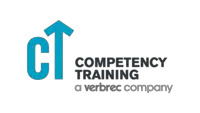Course providers in Mandurah
The following providers offer the UEE40420 Certificate IV in Electrical - Instrumentation in Mandurah.Entry requirements
Entry requirements set by ASQA are the basic qualifications and criteria that students must meet before enrolling in a nationally recognised course.
These requirements ensure students have the skills and knowledge needed to undertake this course.
Domestic Students
- Completed Certificate III in Electrotechnology Electrician or equivalent qualifications OR
- A current ‘Unrestricted Electricians Licence’ or its equivalent issued in an Australian state or territory.
Course fees
The estimated fee reflects the price range across training providers in Mandurah.
The course fee is determined by each individual provider and may vary depending on factors like study mode and student support availability.
- WA Subsidised Training This training may be subsidised by the WA Government for eligible individuals. Places are limited.
Career opportunities
The Certificate IV in Electrical - Instrumentation will prepare you for the following roles.
Instrumentation Technician
An Instrumentation Technician ensures automated equipment is working safely and effectively. You’ll install and calibrate equipment and conduct nec...
Electrical and Instrumentation Technician
An Electrical and Instrumentation Technician, or E&I Technician works with equipment to ensure it operates properly. These technicians can work in...
Industrial Electrician
An Industrial Electrician carries out a range of electrical work for clients in an industrial setting. You might install new systems or carry out c...
Control Technician
A Control Technician looks after repairs and maintenance of control systems. You’ll ensure systems are working efficiently and carry out scheduled...
Find a course provider
Compare all providers for the available in Mandurah to find the right fit for you.
More about Certificate IV in Electrical - Instrumentation
If you are looking to advance your career in the electrical industry, consider enrolling in the Certificate IV in Electrical - Instrumentation in Mandurah. This qualification is not only a stepping stone into various high-demand roles but also provides the foundational knowledge needed to excel in the field. With one reputable training provider in the area, Project Management Vision, you have access to a local, campus-based option that allows for face-to-face learning in a supportive environment.
The Certificate IV in Electrical - Instrumentation course opens doors to a variety of career opportunities in the Mandurah region. Graduates can pursue roles such as an Electrical and Instrumentation Technician, Industrial Electrician, or a Control Technician. Whether you aspire to work in mining, oil and gas, or manufacturing engineering, this qualification aligns with several fields of study, providing the opportunity to specialise according to your interests and the demands of the industry.
Studying locally not only enhances your knowledge but also connects you with potential employers right in your community. The practical skills gained from the Certificate IV in Electrical - Instrumentation can make you a strong candidate for roles such as an Instrumentation Technician or an Electrical Supervisor. By choosing a local provider, you immerse yourself in the Mandurah industry landscape, creating valuable connections for future employment.
This qualification also qualifies individuals for roles like a Forklift Mechanic or a Security System Installer, ensuring your skills are applicable across various sectors. As you progress through the course at Project Management Vision, you will develop competencies that many employers seek, preparing you for a thriving career in the electrical instrumentation field.
As you embark on this educational journey, remember that the Certificate IV in Electrical - Instrumentation is more than just a qualification; it is your ticket to a fulfilling career. With local training providers like Project Management Vision in Mandurah, there has never been a better time to invest in your future. Take the first step today and explore the numerous opportunities awaiting you in roles such as Systems Electrician or Process Technician. Your pathway to success in the electrical industry starts here.


